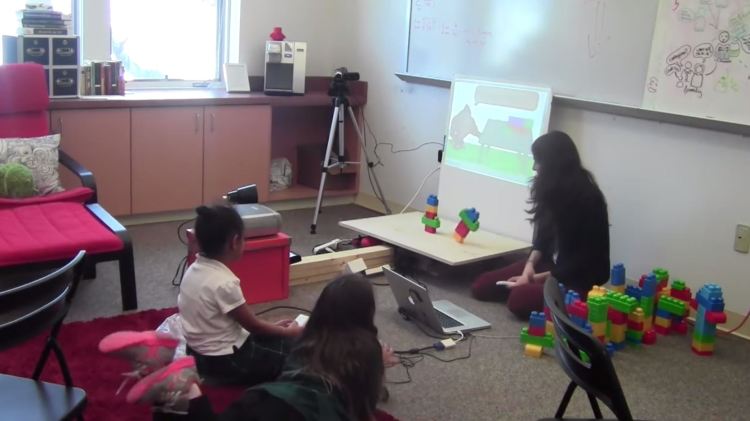Experts predict that the learning-games market will grow to $2.3 billion by 2017, with the mobile space leading the charge. But new research shows a lot of value exists in giving kids access to technology-driven learning experiences that extend beyond the screen.
That’s the message coming from a recent study that used Microsoft’s Kinect motion-sensing camera to power an educational game about elementary physics. Researchers from the Human-Computer Interaction Institute at Carnegie Mellon University, Pittsburgh, found that using physical objects along with Kinect improved the effectiveness of learning by nearly five times compared to an equivalent screen-only experience.
The study got groups of kids to build real-world block towers that could withstand a shaking table. The researchers then gave each group one of four different interactive learning experiences using the same format and offering the same educational message — one on a tablet, one on a laptop, and two using real-world objects with a projected screen and a Kinect camera for sensing. They then reassessed the kids’ tower-building skills and understanding afterwards.
The kids that used the Kinect-powered game — with the camera monitoring real-life towers and triggering feedback when they collapsed — learned far more effectively than those using the tablet and laptop games. They built more stable towers afterwards and liked the game significantly more, with one child reportedly asking, “Can I steal your computer and set this up at home?” Integrating physical controls into the screen-only version of the game — where kids shook the tablet to simulate the effect of a shaking table — had little effect on results or enjoyment.
The study concluded that “mixed-reality games that support physical observation in the real world have a great potential to enhance learning and enjoyment for young children.”
The research team is now looking to repeat the study in different educational contexts, with the goal of creating a “scalable, mixed-reality platform connecting virtual and physical worlds via affordable depth-camera sensing” that can improve children’s science learning and enjoyment.
VentureBeat's mission is to be a digital town square for technical decision-makers to gain knowledge about transformative enterprise technology and transact. Learn More

